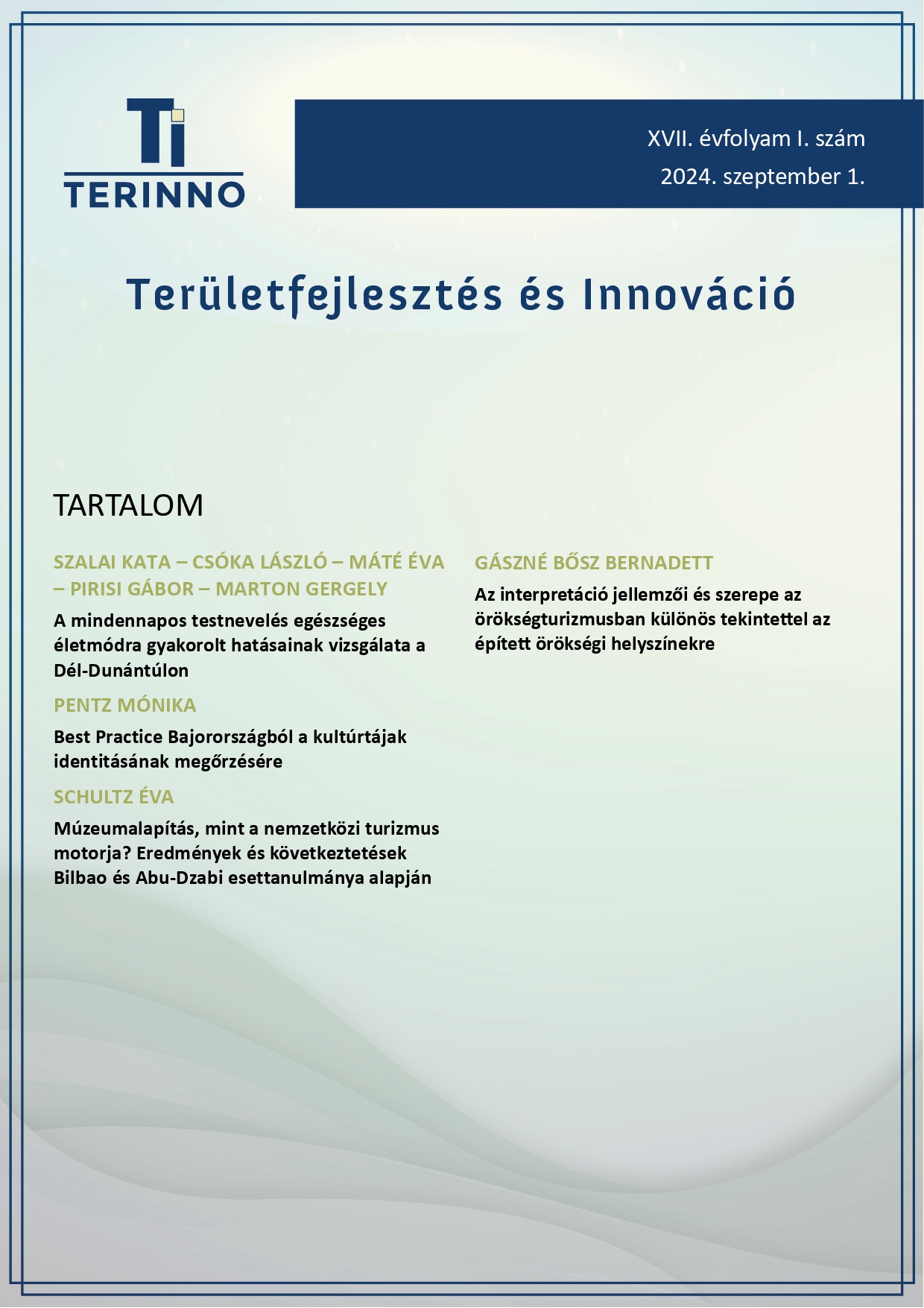Museum establishment as a driver of international tourism? Findings and conclusions based on case studies of Bilbao and Abu Dhabi
DOI:
https://doi.org/10.15170/terinno.2024.17.01.03Keywords:
museum establishment, tourism, Bilbao effect, Abu DhabiAbstract
Museums are significant attractions in cultural tourism, particularly in urban tourism, making their development not only a cultural policy matter but often a tourism policy issue as well. A new museum typically has a strong urban impact – rehabilitative and gentrifying – affecting cultural consumption and thus bringing about changes in both tourism and the quality of life of the local population. As a consequence of COVID-19, it is anticipated that there will be an increased interest in the physical experiences offered by cultural institutions currently accessible exclusively online, leading to higher visitor numbers when museums reopen.
The examples were chosen because the studied tourist destinations have established museums as the foundation of their internationally renowned and attractive cultural offerings, which remain a key element of their tourism brands. The Guggenheim Museum, which opened in 1997, was a pivotal factor in the cultural and touristic transformation of the Basque industrial city of Bilbao. Abu Dhabi, influenced partly by Dubai's tourism investments but targeting a slightly different demand segment, developed its offerings with the Louvre Museum, which has been operating since 2017. A commonality in the museum establishment of both destinations is that they were driven not by a desire to showcase their own heritage but by the intention to create a new image, based on acquiring the naming rights (and part of the collection) of well-established international cultural brands, which quickly became international attractions. The success of the Basque example, known as the Bilbao effect, reflects the aspirations for economic and cultural autonomy within Spain, a major tourism power. In Abu Dhabi, the UAE's tourism development strategy, focused on high culture, is coupled with a post-colonial approach to history and identity, contrasting with Dubai's more popular direction.
The aim of this study is to investigate what factors, in addition to museum establishment, have facilitated the international tourism market entry of the analysed examples. Another aim is to explore the similarities and differences in the tourism of two destinations with very different histories, cultures, economies, and political systems. The methodological basis of the research is the analysis of indicators related to tourism development and its environmental, economic, and socio-cultural impacts in both examples.

